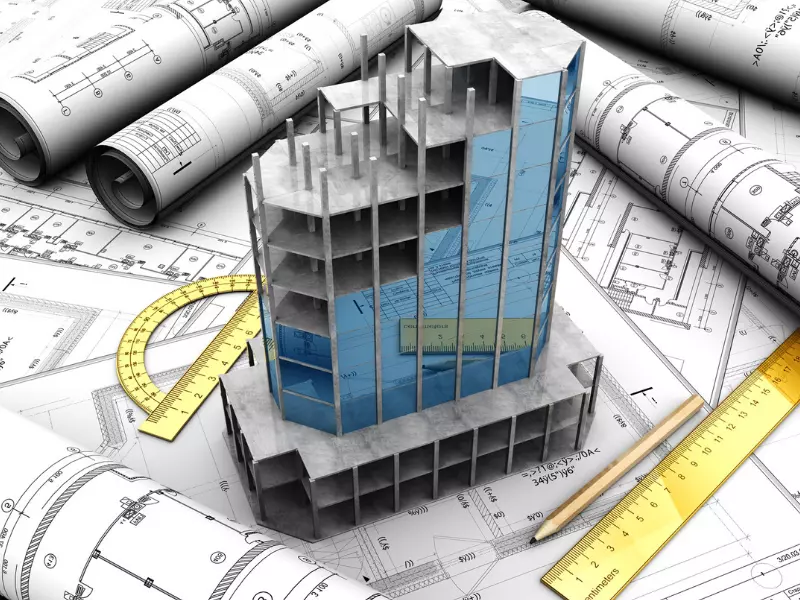Recent Posts
Builders Association of India Urges Urgent Reforms to TNRERA Approval Process

The Builders Association of India (BAI) has called for immediate reforms to streamline the Tamil Nadu Real Estate Regulatory Authority (TNRERA) approval process, citing significant delays and compliance challenges. Developers have highlighted that the approval process often takes 50 to 60 days, well beyond the prescribed 30-day timeline. To address these issues, the BAI has proposed several solutions, aiming to expedite approvals and reduce burdens on developers.
One of the key recommendations is for authorities to raise all queries at once, rather than issuing multiple rounds of questions, and to invite applicants to authority meetings for quicker clarifications. This practice, which has been successfully implemented by the Chennai Metropolitan Development Authority (CMDA), could significantly speed up the process.
Another major concern raised by builders is the discrepancies in property measurements. Developers have suggested providing leniency for minor differences in land extents, particularly in layouts, to prevent unnecessary delays. They believe that this would ease the approval process without compromising the integrity of the project.
The Builders Association has also urged for the exemption of quarterly progress reports (QPRs) from requiring Chartered Accountant (CA) signatures, arguing that the costs involved are a burden on developers. Furthermore, they recommended accepting scanned copies of original documents for redevelopment projects, which would reduce paperwork and streamline the approval process.
Other proposed reforms include requiring only the last-page signature on soil test reports and enabling document sharing between different regulatory agencies such as the CMDA, DTCP, and RERA. This would prevent redundant submissions, saving time and effort for developers.
In addition to these technical reforms, the Builders Association raised concerns over the public disclosure of legal title documents. Developers argued that such transparency could lead to misuse by malicious entities, and they called for restricted access to protect the interests of property owners.
Finally, the association addressed the penalties imposed on developers for selling units before RERA approval, emphasizing the need for a balanced approach. They stressed that high fines, as outlined in a recent circular, could negatively impact the industry and should be reconsidered.
The BAI believes these reforms will enhance efficiency and reduce compliance burdens for the construction sector, ultimately benefiting both developers and consumers.
Recent Posts
India’s Industrial Output Records Strongest Growth in Over Two Years
January 29, 2026Categories
- Acquisition3
- Airport25
- AP147
- Apartments163
- Architecture1
- Bengaluru271
- Budget3
- Budget 202521
- Cement194
- Chennai499
- Construction1,110
- Construction Material Price Updates1
- Corporation5
- CREDAI69
- Editors Pick43
- Equipment57
- Events12
- Export55
- GST18
- Highways136
- Hotel26
- Housing250
- Hyderabad129
- import59
- India340
- Industrial494
- Infrastructure798
- Interiors32
- Investment124
- Iron Ore90
- Karnataka128
- Kerala71
- Labour12
- Land203
- Leasing3
- Logistics85
- Market Updates631
- Metal158
- Metro121
- Mining109
- MSME23
- News2,125
- NHAI109
- Office Space16
- Paints43
- Port10
- Power Shutdown1
- Properties194
- Puducherry13
- Railways12
- Real Estate947
- Rental3
- Results3
- Road251
- Sand43
- Short News117
- SIPCOT24
- Steel Daily503
- Stocks91
- Tamil Nadu555
- Technology131
- Telangana139
- TIDCO16
- Trade135
- Trending News1,171
- Video2
- warehouse96
Related Articles
Special Purpose Vehicle Formed to Develop Mega Shipbuilding Cluster at Thoothukudi
India’s first mega shipbuilding cluster is set to take shape at Thoothukudi...
BySamrita JosephJanuary 29, 2026India’s Industrial Output Records Strongest Growth in Over Two Years
India’s industrial production posted its fastest growth in more than two years...
BySamrita JosephJanuary 29, 2026L&T Q3 FY26 Results: Profit Dips on One-Time Provision, Revenue and Orders Stay Strong
Larsen and Toubro reported a marginal decline in Q3 FY26 net profit...
BySamrita JosephJanuary 29, 2026NHAI Seeks Bids for Rs 51.27 Crore Tunnel Underpass on Bengaluru Airport Highway
The National Highways Authority of India has invited bids worth Rs 51.27...
BySamrita JosephJanuary 29, 2026















Leave a comment